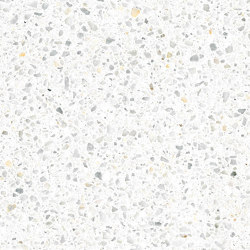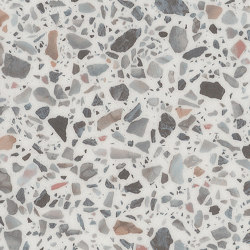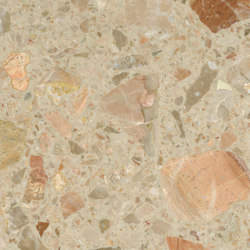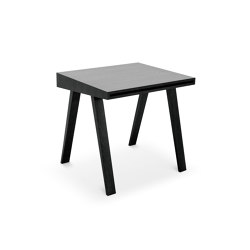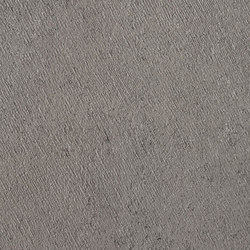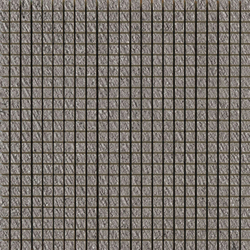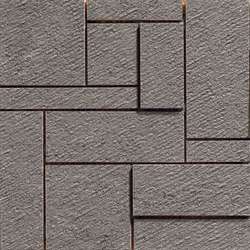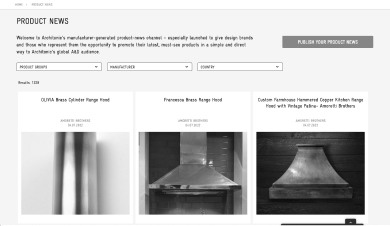Informazioni su Kale
MAGGIORI INFORMAZIONI SU KALE
Laying its foundation with Canakkale Ceramic Factories Corporation in 1957, Kale Group pioneered the formation of the ceramics industry in Turkey, and has become an industry giant in the world with its investments. It has grown over the course of time with investments in machinery and equipment manufacturing, defense, chemistry, electrical appliances, energy, IT, transportation, tourism and food industries. The Kale Group is currently comprised of 22 influential firms, and is regarded as one of the most important industrial enterprises of Turkey with over 5,000 employees and its value to the Turkish economy.
The foundation of Kale Group traces back to Canakkale Ceramic Factories established in the Can district of Canakkale in 1957. As a pioneer in the organization of the ceramic tile industry in Turkey, Kale Group maintained the leading position with Kalebodur Ceramics Industry in 1972, and, over time, has become the biggest ceramic manufacturer in the world by making huge investments. Kale Group continues to broaden its product range with ceramic sanitary ware as well as bathroom and kitchen furniture developments, rendering service under brands like Canakkale Seramik, Kalebodur, Kalekim, and Kale—most of which are also recognized in the market as product names.
Investment product manufacturing activities, the basis of the industrialization of Kale Group, began with the establishment of the Kalekalıp Machinery and Mould Industry Corporation in the 1960s. Beginning with mould and machine part manufacturing, Kalekalıp is currently active in the manufacturing of natural gas meters and pressure reducing stations. Kale Havacılık, a leading enterprise in Turkey, was founded under Kalekalıp, operates in Tuzla, and is taking on crucial tasks in leading defense and aviation projects throughout the world.
With a recent advancement in IT, the Kale Group developed Enterprise Resource Planning (ERP) software and introduced this software to Turkish industrial enterprises. Kale Group is now exporting its products to 60 countries on 5 continents—the continuation of its export thrust that began in 1962. Providing service to society for over 50 years through its industrial identity, Kale Group has always been aware of its social responsibilities as well. Adopting the principles and beliefs of founder Ibrahim Bodur in terms of social services, Kale Group has always made contributions to society in the fields of education, health, culture, arts, science and sports. Dr. Ibrahim Bodur established the Kaleseramik Education, Health and Social Welfare Foundation to achieve continuity in these contributions. The Kale Group is also committed to its natural and ecological responsibilities in compliance with world standards.
Turkey’s first ceramic tile producer, Çanakkale Ceramic Factories Inc., was established in 1957 and Turkey’s first floor tile producer, Kalebodur Ceramic Inc., was established in 1972. While Çanakkale Ceramic became synonymous with quality in wall tiles, Kalebodur gave the product its name. Çanakkale Ceramic Factories Inc. and Kalebodur Ceramic Industries Inc. merged in 2000 under the name “Kaleseramik Çanakkale Kalebodur Ceramic Industries Inc.”
Kaleseramik, which continues its production under the Çanakkale Seramik and Kalebodur brands, is the world’s biggest ceramics establishment manufacturing in a single field with a production capacity of 66 million square metres/year.
Kaleseramik continues production in 50 factories in Çan, which are established on a total of 1.250.000 square metres outdoor space and 650.000 square metres indoor space. These factories, as well as having a yearly production capacity of 27,5 million square metres for wall tiles, 32 million square metres for floor tiles and 6,5 million square metres for granite ceramics, also have the capacity to produce 15.000 tons insulator and 40.000 tons frit. The factory in Yozgat, established on 562.000 square metres outdoor space and 24.000 square metres indoor space, begun production in June 2007 and has the capacity to produce 3,6 million square metres floor tiles per year.
Kaleseramik produces 1900 varieties of floor tiles in 50 different dimensions and 2200 varities of wall tiles in 60 different dimensions and it offers approximately 200 new products to its consumers every year.
Kaleseramik and the Environment
At Kaleseramik Çanakkale Kalebodur Ceramic Industries Incorporated, in addition to the implementation of quality, occupational health and safety management systems, an environmental management system which is in accordance with the terms of TS EN ISO 14001:2005 standard is also implemented.
All the waste resulting from the production and service processes of Kaleseramik is managed in accordance with valid legal requirements.
All the resulting process and domestic waste water is purified in two separate treatment facilities in Çan and Semedeli. With the purification process the waste water goes through physical, chemical and biological processes and is released afterwards to the environment in acordance with legal requirements.
The senior management of Kaleseramik have shown its sensitivity towards the environment with the policy it has established and has announced to all parties.
Kaleseramik Policy
Kaleseramik Seniour Management, which is manufacturing on the soils where human civilisation has come into being, using this soil;
• to determine changing customer wishes and taste in a timely fashion,
• to present to the market products of a high standard of quality to ensure the continuation of customer satisfaction,
• to follow technical and technological developments,
• to ensure that products have at least the minimum technical specifications envisioned by official national and international standards,
• to protect the environment and prevent pollution in every stage from investment plans to existing production facilities and from production to transportation,
• to use energy and natural resources efficiently,
• to provide occupational health and safety in the work environment and to take the necessary precautions,
• to comply with valid legal and other requirements,
• to supply the needed resources,
• to support and ensure the participation of all employees,
• to continually improve the effectiveness of quality, environment, occupational health and safety management systems.
Laying its foundation with Canakkale Ceramic Factories Corporation in 1957, Kale Group pioneered the formation of the ceramics industry in Turkey, and has become an industry giant in the world with its investments. It has grown over the course of time with investments in machinery and equipment manufacturing, defense, chemistry, electrical appliances, energy, IT, transportation, tourism and food industries. The Kale Group is currently comprised of 22 influential firms, and is regarded as one of the most important industrial enterprises of Turkey with over 5,000 employees and its value to the Turkish economy.
The foundation of Kale Group traces back to Canakkale Ceramic Factories established in the Can district of Canakkale in 1957. As a pioneer in the organization of the ceramic tile industry in Turkey, Kale Group maintained the leading position with Kalebodur Ceramics Industry in 1972, and, over time, has become the biggest ceramic manufacturer in the world by making huge investments. Kale Group continues to broaden its product range with ceramic sanitary ware as well as bathroom and kitchen furniture developments, rendering service under brands like Canakkale Seramik, Kalebodur, Kalekim, and Kale—most of which are also recognized in the market as product names.
Investment product manufacturing activities, the basis of the industrialization of Kale Group, began with the establishment of the Kalekalıp Machinery and Mould Industry Corporation in the 1960s. Beginning with mould and machine part manufacturing, Kalekalıp is currently active in the manufacturing of natural gas meters and pressure reducing stations. Kale Havacılık, a leading enterprise in Turkey, was founded under Kalekalıp, operates in Tuzla, and is taking on crucial tasks in leading defense and aviation projects throughout the world.
With a recent advancement in IT, the Kale Group developed Enterprise Resource Planning (ERP) software and introduced this software to Turkish industrial enterprises. Kale Group is now exporting its products to 60 countries on 5 continents—the continuation of its export thrust that began in 1962. Providing service to society for over 50 years through its industrial identity, Kale Group has always been aware of its social responsibilities as well. Adopting the principles and beliefs of founder Ibrahim Bodur in terms of social services, Kale Group has always made contributions to society in the fields of education, health, culture, arts, science and sports. Dr. Ibrahim Bodur established the Kaleseramik Education, Health and Social Welfare Foundation to achieve continuity in these contributions. The Kale Group is also committed to its natural and ecological responsibilities in compliance with world standards.
Turkey’s first ceramic tile producer, Çanakkale Ceramic Factories Inc., was established in 1957 and Turkey’s first floor tile producer, Kalebodur Ceramic Inc., was established in 1972. While Çanakkale Ceramic became synonymous with quality in wall tiles, Kalebodur gave the product its name. Çanakkale Ceramic Factories Inc. and Kalebodur Ceramic Industries Inc. merged in 2000 under the name “Kaleseramik Çanakkale Kalebodur Ceramic Industries Inc.”
Kaleseramik, which continues its production under the Çanakkale Seramik and Kalebodur brands, is the world’s biggest ceramics establishment manufacturing in a single field with a production capacity of 66 million square metres/year.
Kaleseramik continues production in 50 factories in Çan, which are established on a total of 1.250.000 square metres outdoor space and 650.000 square metres indoor space. These factories, as well as having a yearly production capacity of 27,5 million square metres for wall tiles, 32 million square metres for floor tiles and 6,5 million square metres for granite ceramics, also have the capacity to produce 15.000 tons insulator and 40.000 tons frit. The factory in Yozgat, established on 562.000 square metres outdoor space and 24.000 square metres indoor space, begun production in June 2007 and has the capacity to produce 3,6 million square metres floor tiles per year.
Kaleseramik produces 1900 varieties of floor tiles in 50 different dimensions and 2200 varities of wall tiles in 60 different dimensions and it offers approximately 200 new products to its consumers every year.
Kaleseramik and the Environment
At Kaleseramik Çanakkale Kalebodur Ceramic Industries Incorporated, in addition to the implementation of quality, occupational health and safety management systems, an environmental management system which is in accordance with the terms of TS EN ISO 14001:2005 standard is also implemented.
All the waste resulting from the production and service processes of Kaleseramik is managed in accordance with valid legal requirements.
All the resulting process and domestic waste water is purified in two separate treatment facilities in Çan and Semedeli. With the purification process the waste water goes through physical, chemical and biological processes and is released afterwards to the environment in acordance with legal requirements.
The senior management of Kaleseramik have shown its sensitivity towards the environment with the policy it has established and has announced to all parties.
Kaleseramik Policy
Kaleseramik Seniour Management, which is manufacturing on the soils where human civilisation has come into being, using this soil;
• to determine changing customer wishes and taste in a timely fashion,
• to present to the market products of a high standard of quality to ensure the continuation of customer satisfaction,
• to follow technical and technological developments,
• to ensure that products have at least the minimum technical specifications envisioned by official national and international standards,
• to protect the environment and prevent pollution in every stage from investment plans to existing production facilities and from production to transportation,
• to use energy and natural resources efficiently,
• to provide occupational health and safety in the work environment and to take the necessary precautions,
• to comply with valid legal and other requirements,
• to supply the needed resources,
• to support and ensure the participation of all employees,
• to continually improve the effectiveness of quality, environment, occupational health and safety management systems.
MAGGIORI INFORMAZIONI SU KALE


